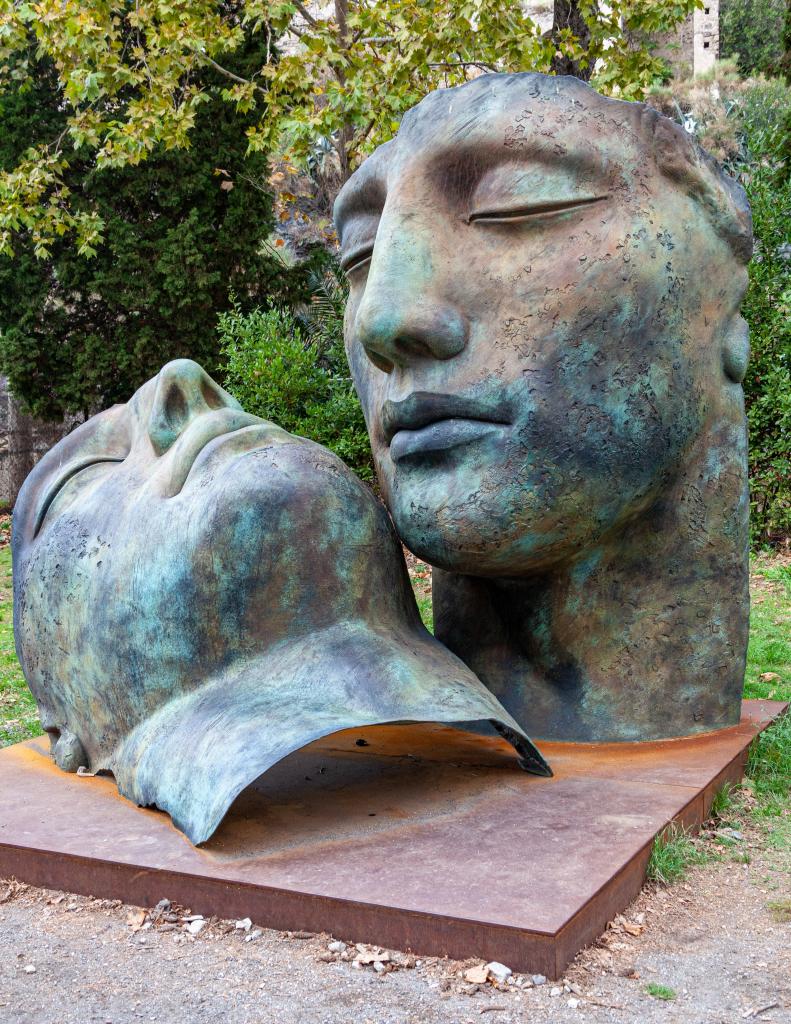As Christians begin moving through the season of Lent, it’s well-worth considering repentance. The forty days of Lent are associated in the Bible with the Israelite’s forty years of testing in the wilderness, or Jesus’s time in the wilderness facing down temptations. Repentance is a way of naming that wilderness process of tackling our inner preparedness to meet Christ’s resurrection.
Of course, repentance is also a word weighed down heavily with baggage, most of it unfortunately associated with a punishing God. In this frame, repentance becomes a fear-based, anger-appeasement process around an unhealthy God. But this all too often abused popular understanding of repentance has little connecting with the biblical or inner meaning of repentance, and even less to do with a gracious God. Repentance is, instead, about growing conscious regarding what hinders us from the love of God. Fr. Thomas Keating, who died several months ago, can teach us.
Fr. Keating, a true spiritual luminary, helped start what is known as centering prayer in the 1970s. A few monks in Spencer Massachusetts were discussing the rise of Westerners turning to Eastern spirituality, and lamenting the fact that the Christian mystical tradition seemed to be nearly forgotten. So, they created an accessible prayer form, based on Christian contemplative teachings, particularly a classic 14th century text called The Cloud of Unknowing, and called it Centering Prayer.
The goal of centering prayer is to consent to the presence of God, which is closer to us than breath, thinking, or consciousness itself. As Fr. Keating frequently liked to say, “Silence is God’s first language. Everything else is a poor translation.”

One of Fr. Keating’s teachings is that contemplative prayer, the process of consenting to God’s loving presence, has the power to heal our emotional programs for happiness. We all have ingrained structures of belief and patterning that largely shape what we’re up to in the world: we desire, as Keating puts it, security and survival, power and control, or esteem and affection. Each of us in some unique way is involved in pursuing happiness where we will not ultimately find it: through attaching our making of money with the underlying fear that we will not be secure, or through seeking ever more ways of controlling reality and other people, or through seeking approval, and praise from people.
Repentance, in Keating’s frame, is simply this: to change the direction in which we are seeking happiness. To give up our emotional programs and to turn to God. We need to do this because emotional programs will not ultimately make us more loving. They will not save us. They will not save the world.
We are so used to being in control. We are so programmed to think that our thoughts, and our personality, and our opinions, and our jobs, and our to-do lists, are what make us “us.”
The deeper contemplative teaching from nearly all mystics, regardless of religious tradition, is that it isn’t so! Some form of intentional and sustained spiritual practice is needed to help us reorient, or change direction, of how we are seeking satisfaction in our lives.
That’s why it’s so hard. As soon as we are in silence, we are actually face-to-face with our emotional program for happiness. The silence tells us the truth about ourselves, about how addicted we are to our ego’s programs. Silence is a gift that teaches us how to be free.
Photo by Andraz Lazic on Unsplash











